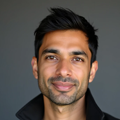Mozilla recently announced the shutdown of Pocket, a popular read-it-later app, effective July 8, 2025. This decision marks a significant shift in how the tech giant is aligning its resources with evolving user needs.
- Mozilla shutting down Pocket on July 8
- Fakespot browser extension also discontinued
- Users can export data until October 8
- Mozilla shifting focus to new browsing tools
- User dissatisfaction expressed on social media
- Emphasis on AI-powered browser features ahead
Alongside Pocket, Mozilla will also discontinue Fakespot, a browser extension designed to help users identify unreliable reviews. While Mozilla has not specified the reasons for these closures, they emphasize a commitment to enhancing the online experience through new features and tools.
This raises an important question: how will these changes affect loyal users? The discontinuation of beloved services like Pocket may lead to frustration among its user base. However, Mozilla is redirecting its focus towards improving its New Tab experience and introducing AI-powered features.
- Shifts in user engagement may lead to a decline in app usage.
- Increased focus on AI and personalization could enhance browsing experiences globally.
- Potential gaps in the market for read-it-later services may arise.
- User feedback will be crucial in shaping future Mozilla offerings.
Looking ahead, users and developers alike should stay informed about Mozilla’s upcoming features and consider how they can adapt to these changes in the tech landscape.
































